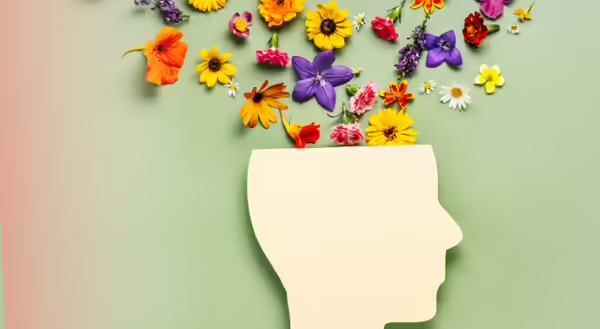
May is Mental Health Awareness Month!
Did you know that 7 in 10 teens struggle with feelings of overwhelm, stress, anxiety, and depression? One way to help manage these difficult emotions is to practice self-care. Self-care is simply taking time to do something every day to help you relax, manage stress, and improve your mental health.
The National Institute for Mental Health has the following tips to get you started with self-care: here are tips
- Get regular exercise. Just 30 minutes of walking daily can help boost your mood and improve your health. Small amounts of exercise add up, so don’t be discouraged if you can’t do 30 minutes at one time.
- Eat healthy, regular meals, and stay hydrated. A balanced diet and plenty of water can improve your energy and focus throughout the day. Also, limit caffeinated beverages such as soft drinks or coffee.
- Make sleep a priority. Stick to a schedule, and make sure you’re getting enough sleep. Blue light from devices and screens can make it harder to fall asleep, so reduce blue light exposure from your phone or computer before bedtime.
- Try a relaxing activity. Explore relaxation or wellness programs or apps, which may incorporate meditation, muscle relaxation, or breathing exercises. Schedule regular times for these and other healthy activities you enjoy, such as journaling.
- Set goals and priorities. Decide what must get done now and what can wait. Learn to say “no” to new tasks if you start to feel like you’re taking on too much. Try to be mindful of what you have accomplished at the end of the day, not what you have been unable to do.
- Practice gratitude. Remind yourself daily of the things you are grateful for. Be specific. Write them down at night, or replay them in your mind.
- Focus on positivity. Identify and challenge your negative and unhelpful thoughts.
- Stay connected. Reach out to your friends or family members who can provide emotional support and practical help.
Take time to discover what works best for you! Self-care can assist in managing mental health but is not a cure for a mental disorder. If you are experiencing severe or distressing symptoms that have lasted more than two weeks, talk to your primary care provider. Additionally, if you or someone you know is having thoughts of suicide, call or test the 988 Suicide & Crisis Lifeline. In life-threatening situations, call 911.
Emergency Numbers:
- National Suicide and Crisis Hotline
- Call 988
- Crisis Text Line
- Text HOME to 741741
- The Trevor Project (LGBTQ+)
- 1-866-488-7386, text START to 678678
- National Domestic Violence Hotline
- 1-800-787-3224, text LOVEIS to 2522
- National Mental Health Hotline
- 1-866-903-3787
ABOUT THE AUTHOR: Susan Sloop is a 4-H Youth Development Specialist in Health and Wellness. She provides leadership to the 4-H youth development program focusing on 4-H clubs, 4-H groups, and youth education initiatives. Susan delivers researched based educational programs to youth and adult audiences geared towards healthy lifestyles, social-emotional learning, positive youth development, and workforce preparation.